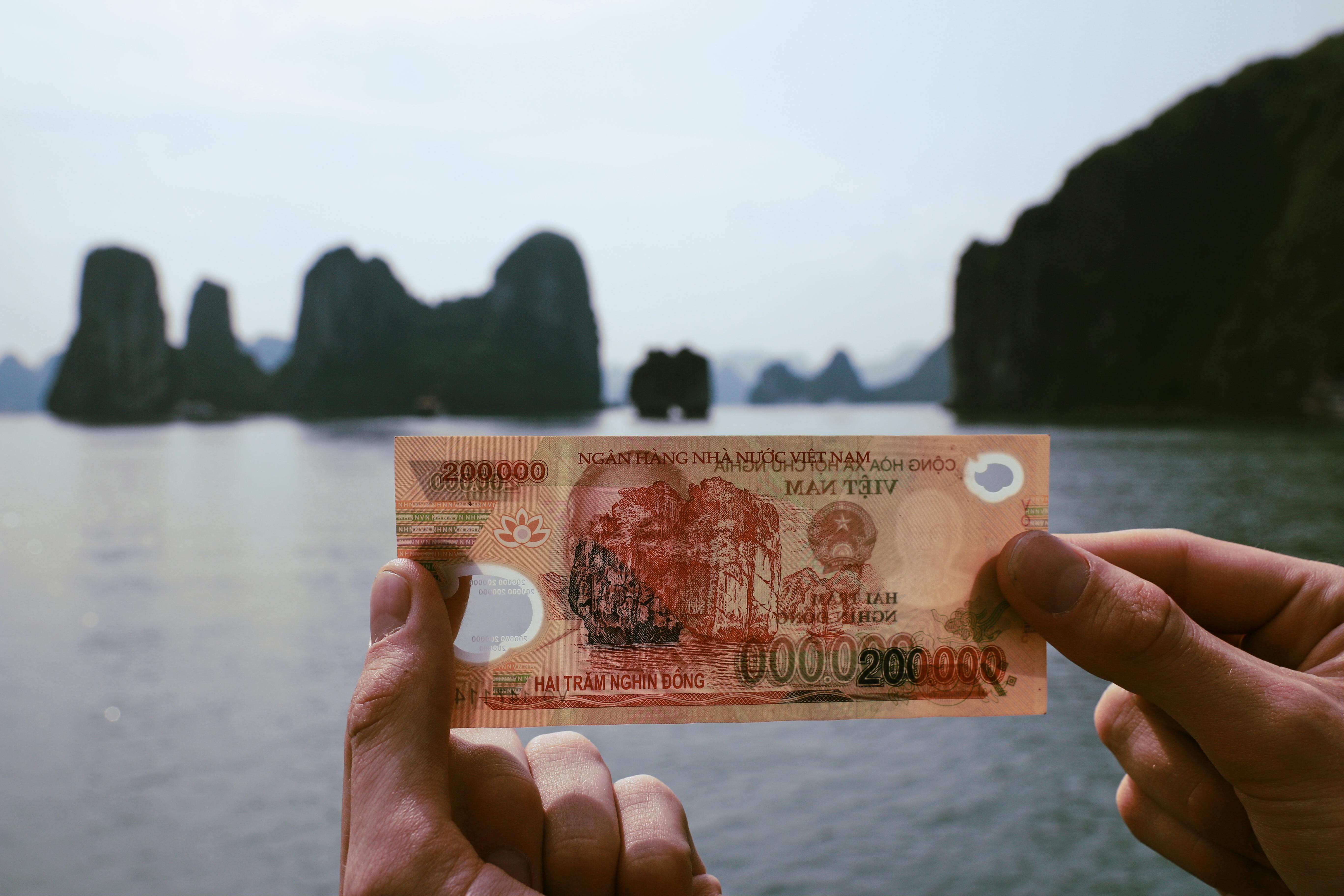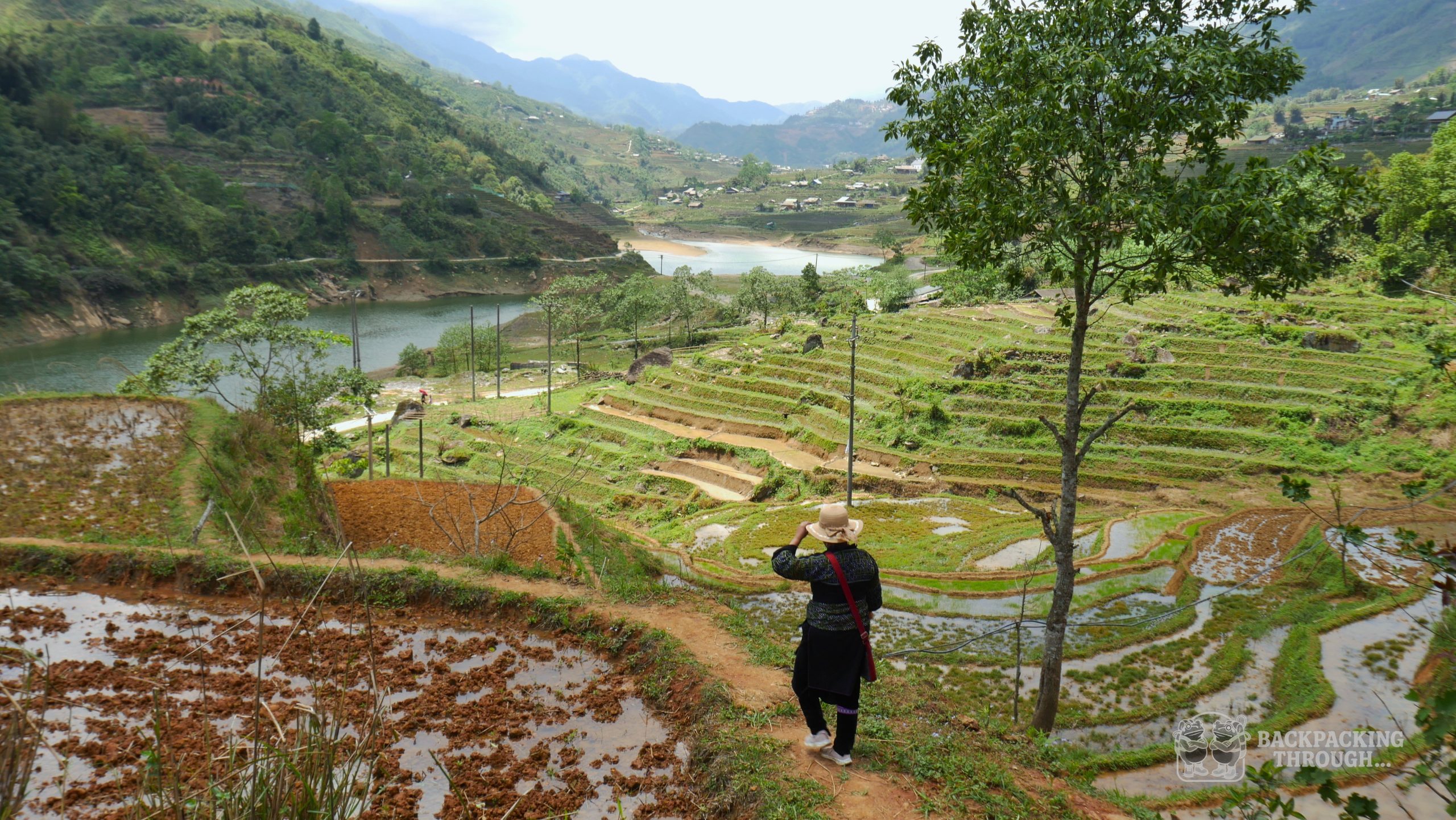Vietnam is undoubtedly one of the countries with the friendliest and most welcoming people I’ve visited, and most of the Vietnamese I spoke with made me feel at home and appreciate their country even more. Despite that, it’s impossible to deny that if you travel as a tourist, there will be people and businesses trying to make you pay more than you should for a service.
Of course, when we travel to Vietnam from a country like Spain, where salaries are higher and the currency is stronger, we are in a privileged situation where, even if we pay double for a meal, it will still feel very cheap to us. But regardless of that, it’s clear that no one likes to feel scammed or to know they’ve been taken advantage of.
We were traveling in savings mode, so we had a set of guidelines to follow to avoid these situations, and I’m going to share the ones that were most useful to us.
1. Always count your change when you pay.
This might seem quite obvious, but in reality, not everyone does it. Keep in mind that Vietnamese prices are very high numbers, and some of the bills look very similar to each other, so counting the money can be a bit tedious.
There were more than a few times when they tried to give us less change at small shops. The good news for those who don’t handle confrontation well is that probably not a single word is needed. In all those cases, it was enough for us to wait a (short but awkward) moment, making it clear we knew some bills were missing, for them to continue giving us the rest after a careful recount.
It’s just a matter of paying attention; there’s nothing wrong with counting the bills in front of the cashier, even if it takes some time. And you don’t need to be very good with numbers—just having a rough idea of how much change you should get is enough.
The times it happened to us weren’t small confusions or small amounts; it was very obvious (for example, if we should get 80,000 dongs back, they gave us 30,000 and “forgot” the other 50,000). But for someone a bit distracted or who trusts easily because they don’t know the currency well, or are too lazy to check, it’s easy to fall for the trick.
2. Use Grab instead of taxis.
Negotiating prices with a taxi driver can be a headache, especially if you’re not familiar with the area and don’t have an idea of what a reasonable fare for your trip is. My personal recommendation is to always use the Grab app—it works in practically all tourist areas, and the prices are the same or even lower. They have car and scooter drivers.
Payment is set and managed through the app, so there’s no chance of being overcharged, and you can also pay by card. Plus, you make sure there are no misunderstandings about the destination since you mark it in the app. It also has certain safety features—you can activate audio recording and location tracking during the trip, so you’ll be quite protected. And the prices are equal to or even cheaper than conventional taxis.
Finally, if you’re forced to or prefer to take a taxi, make sure to negotiate the price before getting in to avoid misunderstandings.
3. Watch out for fake guards at the entrances of places.
No joke, there are people who stand at the entrances of parking lots or certain free tourist attractions and approach you as you arrive, asking you to pay an entrance fee or a parking charge.
We encountered one at the entrance to the abandoned Hồ Thuỷ Tiên water park in Huế, and another in the parking lot of Bich Dong Pagoda in Ninh Binh, the latter even dressed as a security guard.
Luckily, this doesn’t happen often and they usually don’t ask for very high fees, but I recommend checking a couple of reviews on Google Maps for the place you’re visiting, either before you go or if you see someone suspicious when you’re there. People tend to have them well identified and usually warn about them in their reviews.
4. Be careful with fines when riding a motorcycle or scooter.
Riding a scooter is one of the most purely Vietnamese experiences and the most convenient way to get around cities. There are thousands of rental companies, and many of them won’t even ask for your license, which leads many tourists to take the risk of riding without a proper license, either out of ignorance or disinterest.
My first advice is not to do this if you have no experience with scooters. Accidents are very common, and it’s completely unnecessary because you will always find alternatives to get wherever you want without putting your life at risk.
The second is to be well informed about the regulations. In Vietnam, it is not legal to ride a scooter with an international B license, no matter how many years you’ve had your license or how often you’ve ridden a scooter in Spain—you won’t be riding legally unless you have an A license specifically.
Finally, if you plan to visit the Ha Giang Loop and intend to drive the motorcycle yourself, you should know that the international permit issued in Spain falls under the 1949 Geneva Convention, which is not recognized in Vietnam. While it’s true that you’re unlikely to have problems in most of the country, in places like this, due to the amount of tourism and recent accidents, the police are very active and it’s very likely you will have to pay a significant fine.
It’s very likely that the rental company itself will ask you for a generous fee to avoid these inspections. Here I have to say that many companies can provide “registered” motorcycles to avoid inspections. However, you should bear in mind that this is not a legal guarantee, nor do you have a way to verify it (although I haven’t heard of cases where they deceive you about this).
The only way to completely avoid this problem is to hire a motorbike driver. This will also allow you to enjoy the views at all times without worrying and share a beautiful experience with a guide who, in general, tends to be very special and unforgettable.
5. Book tours and transportation through reputable websites or directly from your hotel.
There are fake websites that offer train, bus, or activity tickets. That’s why I always recommend looking for recognized and official sites.
For transportation, all the tickets you need (train, night bus, plane…) can be booked through the 12go Asia website. This way, you’ll be protected against fraud and, if anything happens, you can claim your money back.
For activities, you can find options through GetYourGuide or Agoda; the latter, along with Booking, also offers great accommodation options.
Extra tip: enjoy your trip and keep your trust.
In this post, we’ve talked about some common scams, and it’s easy to come away with the impression that everyone will try to cheat you. But nothing could be further from the truth: the vast majority of Vietnamese people will treat you with kindness and genuine good intentions, especially if you travel with an open and respectful attitude.



Leave a Reply